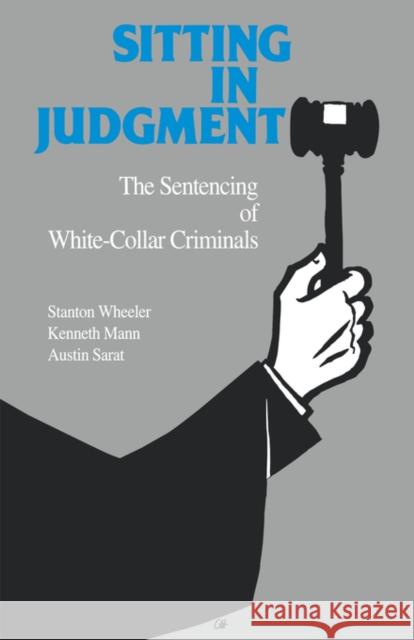Sitting in Judgement: The Sentencing of White-Collar Criminals » książka
Sitting in Judgement: The Sentencing of White-Collar Criminals
ISBN-13: 9780300054750 / Angielski / Miękka / 1992 / 216 str.
This is the first book to describe in detail how judges sentence white-collar criminals. Drawing from lengthy, in-depth interviews with fifty-one judges in seven federal districts, the authors explore such topics as the information available to sentencing judges and how they work with it; the principles of harm, blameworthiness, and consequence that affect judges' decisions; and the conceptual problems that make it difficult to convert a basic agreement on principle into a system of consistent sentences. "Sitting In Judgment will continue to have an impact on the academic and professional community, as well as on sentencing policy and legislation. . . . An eye opener. The presentation is cogent and persuasive. It moves the debate about sentencing to a more informed and less abstract level."--Charles M. Carberry, White-Collar Crime Reporter "Sitting in Judgement hits the bull's-eye in describing a judge's thinking process as to the sentencing of criminal defendants. Its analysis should be of great value to lawyers and other professions dealing with this important subject."--Judge Morris E. Lasker, United States District Court, Southern District of New York "This book should go a considerable way toward rehabilitating the standing of federal judges in the eyes of those who regarded them, in the words of Wheeler and his co-authors, as 'a miscellany of individuals each heading off in his or her own ideological or emotional direction.' And it is valuable in presenting, in their own words, the views of the judges as to how they arrive at the sentences they give to white-collar criminals."--Gilbert Geis, Judicature "Unique and invaluable as a resource for social theory, the book is also quite provocative for policy development. Nonlawyers will not have the slightest difficulty in reading this book."--Jack Katz, Contemporary Sociology











